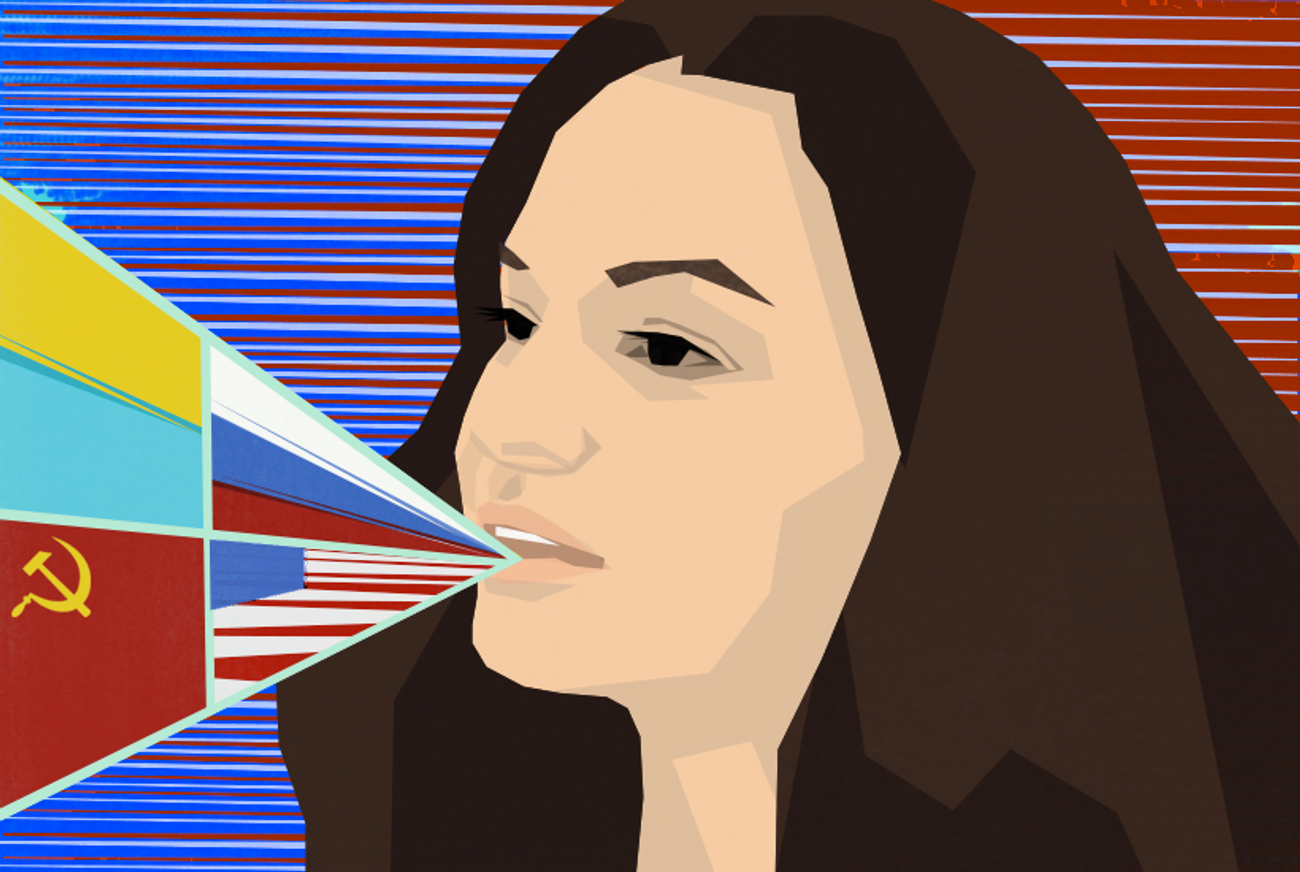Enough With Russia, Already: I Want To Be an American
When people ask questions about my Soviet past, the answers aren’t easy. I’d rather be defined by my future.




I was in a taxi this spring, talking to my mother in Russian on my cell phone. When I hung up, the driver asked me where I was from. “I’m from Russia,” I told him. He was pleased with my response, since he’d correctly guessed the language I’d been speaking. I was less satisfied, though, because while my answer was practical and got the essential information across, it wasn’t exactly accurate.
I’m not from Russia. I was born in Kharkov, which was then part of the Soviet Union and is now (known as Kharkiv) part of the warring eastern zone of Ukraine.
Russian, it’s true, is the language I grew up speaking there. Like most Jews in the Soviet Union, I heard Russian at home, with a sprinkling of Yiddish added for emphasis. My kindergarten teachers spoke to me in Russian. In Soviet days, Russian language and culture trumped all else, even though we were technically living in the Ukrainian SSR. Even today, the city—which lies about 25 miles from the Russian border—remains largely Russian-speaking.
But just because I grew up speaking Russian didn’t mean I was Russian. I’m not Russian any more than I’m from Russia.
So, how should I answer a seemingly innocent question like the one the cab driver asked me? I’m asked such questions often—by salespeople, work associates, or friends of friends. It’s been 24 years since I left the Soviet Union to come to America, and I hadn’t settled on a single answer that feels right. Until now.
***
When I immigrated to the United States at the age of 7, I was technically leaving the Soviet Union. But within a year, the Soviet Union ceased to exist. So, for a while, I would tell teachers in school that I was from Ukraine. I was telling the truth in the most literal way: The Soviet Union was no longer, and my U.S. passport said I was born in Ukraine. But then they started calling me Ukrainian, not realizing how far from Ukrainian most Jews in the Eastern part of the country felt.
In fact, the greatest distinction for my family when I was growing up was that we were Jews; back then it was considered an ethnicity similar to—but also mutually exclusive from—being Russian or Ukrainian. To have Americans teeter between calling me Ukrainian or Russian seemed ironic, since I hadn’t been accepted into either group in the minds of the Communists growing up. But while back in the Soviet Union I would have been simply Jewish, telling my friends and teachers in America that I was simply Jewish wouldn’t have answered their underlying questions: Where are you from? Who are you?
In college, I came up with an answer I felt confident about, a complete and honest answer: I would tell others that I’m Jewish, from the former Soviet Union, and was born in present-day Ukraine. While I felt comfortable with that answer, and still do, it was long and felt like I was presenting friends with an unwelcome history lesson rather than answering a quick get-to-know-you question.
When the Russian military intervened and annexed Crimea earlier this year, I became even more anxious about how to address my roots. I never thought that the place I was born would one day be on the verge of war. In the 24 years since we escaped, I’d never been back. It seemed like a faraway land that I learned about through family and Wikipedia. A part of me feels guilty to be living a life that’s difficult to compare with the one I would have had if my Jewish family had not been allowed to emigrate; for once I got lucky because I was Jewish. But the conflict between Russia and Ukraine today is not something I can identify with. The cab driver who’d guessed I was speaking Russian followed up with another question about how I felt about the situation in Ukraine. I felt like I wasn’t in any position to answer or choose sides.
The detachment I feel over that distant conflict has, however, helped me realize exactly what I should have been saying all along when people ask where I’m from, or who I am: I’m from Chicago. I’m an American. It’s succinct, and it’s true. More important, it’s a reminder that I’ll be forever grateful for the opportunity to live in a country where the many freedoms trump the injustices.
Yes, it’s sad to bring up my Soviet roots less and less. Sharing with others that I was from another place has helped me relate to those who’ve also immigrated to America. We all share part of the same story, and it really does help form an instant bond. On the other hand, by glossing over my past, I’m embracing my future as an American where people of different ethnic backgrounds can somewhat successfully coexist.
I will never hide my heritage, and I’ll continue to speak Russian, my native language, or pipe up with memories from my Soviet upbringing. I’m not embarrassed, nor am I just trying to circumvent giving a complicated answer. People will never stop asking about others’ origins—it’s a social leveler of sorts and a conversation starter. But how I answer the question “Where are you from?” helps mold people’s first impression of who I am. And today, I’d rather be defined by being American.
***
Like this article? Sign up for our Daily Digest to get Tablet Magazine’s new content in your inbox each morning.
Alina Dizik is a freelance journalist. Follow her on Twitter @dizik.
Alina Dizik is a freelance journalist. Follow her on Twitter @dizik.